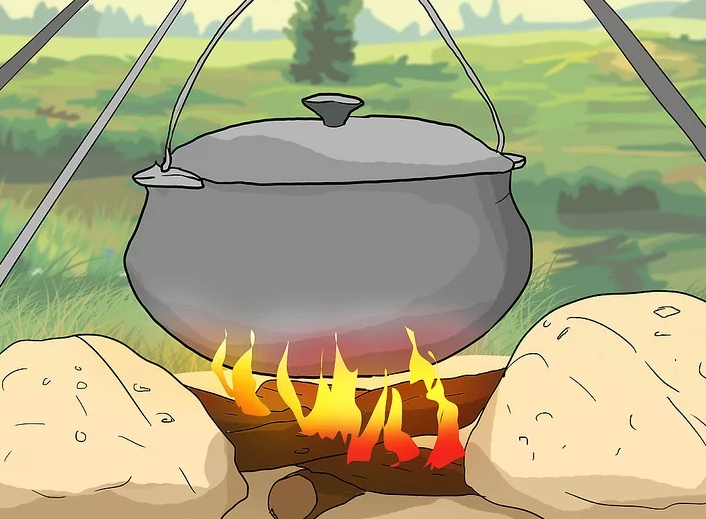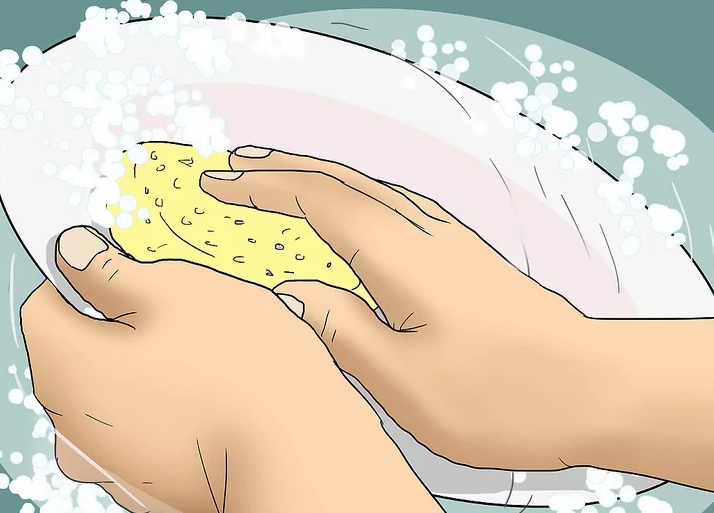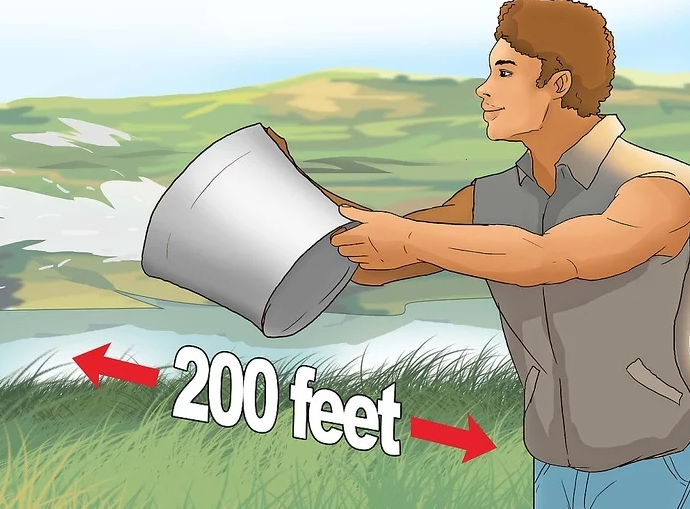How to Clean Dishes on a Camping Trip
It can be frustratingto find a way to do dishes while you're camping. It's important to wash dishesthoroughly, however, as this helps prevent the spread of bacteria and keepsyour campsite clean. With some soap, buckets, and sanitizing tablets, it'sfairly easy to wash dishes on a camping trip. After washing your dishes, makesure to dispose of the water safely.

Part 1 Creating a Cleaning Station
1,Start boiling your water while you'reeating. Beforeenjoying your dinner, take the biggest pot you have. Rinse it out if necessaryand then fill it with clean water. Place it over the fire so it starts to boilwhile you eat.
2,Separate the water into three buckets. Once thewater is boiling, carefully distribute it between three buckets. One bucket isfor washing, one for rinsing, and one is for sanitizing your dishes. Fill eachbucket about a quarter of the way full with water.[2]
3, Add soap to one bucket. In your first bucket, add a few drops of aliquid dish soap. The soap should be biodegradable to help protect theenvironment while you camp.
Some soaps are specifically made forcamping. Before leaving for your trip, see if you can find a camping-specificdish soap online or at a local department or hardware store.
4,Add a sanitizing agent to one bucket. You can buysanitizing agents online or at local hardware or camping stores. Check thelabel to see how many sanitizing tablets you should add to the bucket. Usually,the ratio is one tablet per gallon of water, but ratios will vary by brand.
You may not have a means to measure theexact amount of water you're using. Just do your best to estimate.

Part 2 WashingYour Dishes
1,Wipe food residue off your dishes. Use paper towelsor cloths to wipe down your dishes immediately after eating. This removes anyobvious scraps of food from your dishes.
It's best to scrape your food into thefire. This way, the food will burn up and you won't risk attracting animals toyour campsite.
2,Wash each dish. Place the dirty dishes in the wash tank oneat a time. Scrub down the dishes thoroughly with the soapy water and cleanrags. After the item is clean, shake off any suds before transferring it intothe rinse tank.
Start with the cleanest dishes and thenmove on to the dirtiest ones.
3,Rinse your dishes in the second pan. Transfer theclean dish to the rinse pan after washing it. Dunk the dish in this tankbriefly and swish it around to remove excess water.
If you notice your dish is notcompletely clean when you place it in the rinse tank, move it back to the washtank and give it a good cleaning.
4,Sanitize your dishes. After yourdishes are rinsed, set them in the sanitize tank. Briefly let the dishes soakin the sanitize tank to remove any lingering bacteria. This is especiallyimportant for dishes like knives and cutting boards, which harbor a lot ofstrong scents that can attract animals.
5,Dry your dishes. Never letdishes stay wet after washing them. Use a clean towel to dry off your dishesafter sanitizing them. You can then store your dishes for the night.

Part 3 Disposingof Garbage and Dirty Water
1,Consolidate your water. After washingyour dishes, pour all three buckets of water into a single bucket. It's best todump the sanitize bucket into the rinse bucket and then dump the rinse buckinto the wash bucket.
2,Strain your water. Place a metal strainer or asimilar device over one of the empty buckets. Pour the water over the sink tostrain out any lingering food debris.
Any solid waste should be transferredinto your garbage or burned in the fire.
3,Dump your water 200 feet away from any water source. You don't want to contaminate water sources with your dirty water.It's vital to be at least 200 feet away from a water source before dumping yourdishes.
Estimate if you don't have an exactmeans of measuring. Always go farther than you think you need to.
4,Donot dump your water in a single spot. As you dump the water, move the bucket around so it's dispersed over a largepatch of land. Dispersing the water in a single spot is an environmental hazard.
